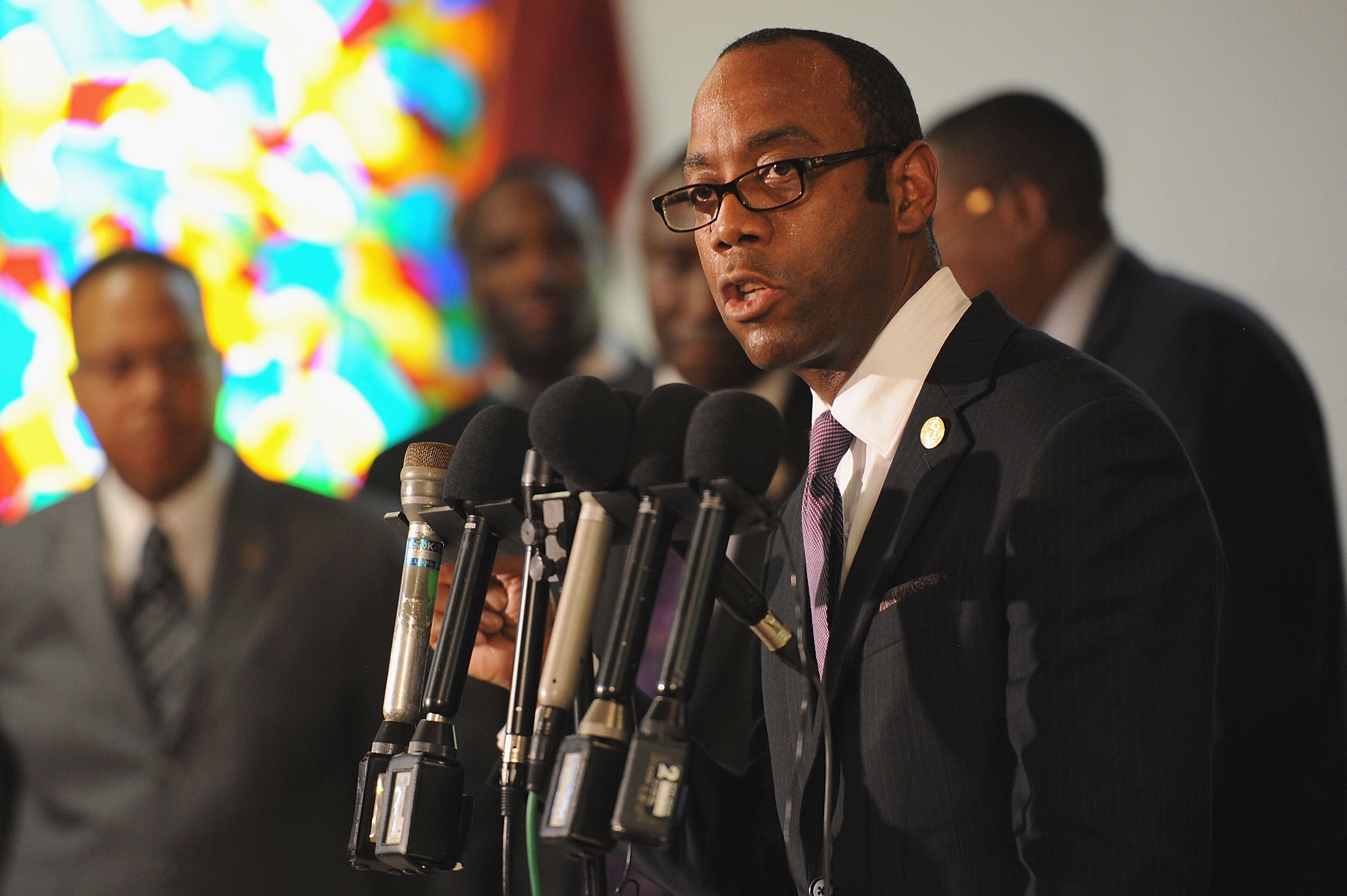
As the country prepares for an impending Donald Trump administration, resistance movements have already spread across the country.
On Tuesday, the NAACP staged a sit-in at the office of Senator Jeff Sessions to protest his nomination as U.S. Attorney General. Sen. Sessions served as an adviser to President-elect Donald Trump during the 2016 presidential campaign on major policy proposals. He has also served in the Senate since 1997. But it’s his noted racist past that has the NAACP and people across the country fearful of his appointment to the Department of Justice. In 1986, Sessions was denied a judgeship appointment in the U.S. District Court for the Southern District of Alabama after it was revealed he joked about the Ku Klux Klan and made racist statements.
NAACP President and CEO Cornell William Brooks joined the local Alabama branches to protest Sessions’ nomination. The NAACP live-streamed the protest on its Facebook page, which ended when Brooks, along with five others, were arrested at the Mobile office.
After the @jeffsessions sit-in, these mugshots aren't pretty but they're pictures of @NAACP determination. #RestoreTheVRA & #stopsessions pic.twitter.com/QWnReXQnLn
— Cornell Wm. Brooks (@CornellWBrooks) January 4, 2017
ESSENCE spoke with Brooks shortly after his release to discuss the importance of blocking Trump’s controversial appointment.
“We find ourselves in the millennial civil rights movement,” Brooks said. “We see hundreds of thousands of people protesting in the streets. This nominee [Jeff Sessions] will not stand with voting rights. He will stand in opposition. He refuses to acknowledge voter suppression. His state [Alabama] has lived under a voter suppression law. His state closed DMVs in Black communities. This is the kind of voter suppression that is going on in his state,” Brooks continued, calling out the Selma-born Senator for not upholding the Voting Rights Act, which was also established in the historic city.
“This is unconscionable. This [issue] is literally a matter of the life and blood of the NAACP. Our members gave their lives for this.”
In the new age of social media activism, Brooks says the NAACP is preparing for a Trump presidency by evolving the way it fights injustice: “We’re preparing by doing what we’ve always done in new ways. We’re taking it to the hearing room and the streets. We’re partnering with sister organizations and millennial organizations, not just in legislature but in the streets, in Congress and elsewhere.”
Brooks also says the NAACP is just getting started with its heightened opposition. The next step is mobilizing the more than 2,200 branches of the NAACP to not only speak out against racial inequality, but to also speak out in support of the LGBTQ and immigration communities.
He hopes the NAACP has the opportunity to testify in Sessions’ hearings next week.
“If you can’t go to jail, you can march. If you can’t march, you can write a letter. If you can’t write a letter, you can tweet. In this age of mass incarceration, you have to stand up. You have to do something,” Brooks said about taking up a role in the newest resistance movement.
Sessions is set to appear for confirmation hearings on Jan. 10 and 11 before the Senate Judiciary Committee. All six members arrested Tuesday were charged with second-degree criminal trespassing.